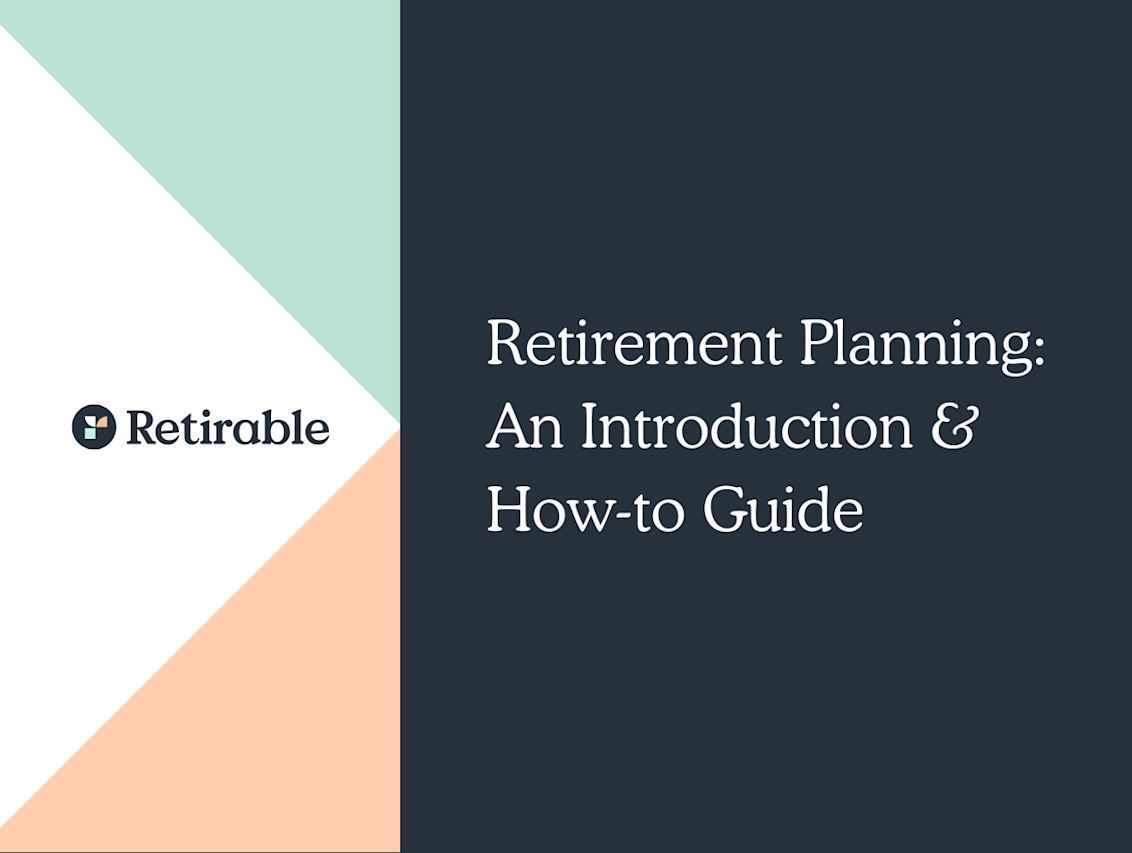Retirement Accounts
Whether you’re contributing to a traditional IRA, Roth IRA, or a combination, the 2025 contribution limit is $7,000, or $8,000 for those aged 50 and older.

Harrison Schaefer, CFP®
•
Published December 1st, 2020
•
Updated February 18th, 2025
Table of Contents
Key Takeaways
The combined 2025 IRA contribution limit is $7,000, or $8,000 for those aged 50 and older.
While you can only contribute “earned income," you are allowed to open up an IRA for a spouse who doesn’t work and contribute your earnings for them.
There may be limitations on your contributions or deduction if you make over certain salary caps.
2025 IRA Contribution Limits
Whether you’re contributing to a traditional IRA, Roth IRA, or a combination, the 2025 contribution limit is $7,000, or $8,000 for those aged 50 and older. There are some restrictions, based on income and whether or not you’re covered by a retirement plan at work, that may affect how much you can contribute.
Both traditional and Roth IRAs can be an excellent part of your financial plan, as both carry tax benefits. With a traditional IRA, you get a tax deduction on the money you save, and the money you take out in retirement is taxable. A Roth IRA works the opposite – you don’t get any tax deduction now, but the money you take out in retirement is tax free.
Before you decide where you want to save your money this year, take a look at your overall financial plan. Money put aside in an IRA or other type of retirement account should only be used for retirement, and there are penalties for taking money out early, so don’t put in more money than you’re comfortable. You should also consider whether it makes more sense to pay off debts before retirement – you may end up saving more money by not paying interest than what you would’ve gained from investment accounts.
Contributing “earned income”
Any money that you contribute to an IRA must be “earned income” – money that you get from working a job or being self-employed, including wages, bonuses, commissions, and tips, or from owning a business. Disability retirement benefits also count as earned income until you hit the minimum retirement age.
Other types of income, like from alimony, child support, owning rental properties, and unemployment benefits, don’t count as “earned income” in the eyes of the IRS.
If you’ve earned less money in a year than the current contribution limit, that amount becomes the maximum you can contribute. For example, if you earned $12,000 from a rental property and $4000 from a freelance job, the maximum you could contribute to any form of IRA is $4000.
Spousal IRAs
There is a workaround to this requirement for families where one spouse doesn’t earn income. It’s called a “Spousal IRA.” Whoever is earning income can open up an IRA for their spouse, and contribute income that they’ve earned. The working spouse can contribute up to the limit in both IRAs for themselves and for their spouse, as long as they have enough earned income to cover both (in 2025, that would be $14,000 in earned income).
Salary limits
Depending on how much you earn, the maximum you’re allowed to contribute to an IRA may be reduced or eliminated entirely.
There are no salary limits on a traditional IRA as long as neither you nor your spouse are covered by a retirement plan at work, such as a 401(k). However, if you or your spouse are covered by a retirement plan at work, your tax deduction may be reduced or eliminated.
Roth IRAs, on the other hand, have simpler salary limits. If you earn over a certain amount, the amount you contribute is reduced or eliminated entirely.
If you go over your salary limit or the general contribution limit, you’ll have to pay a 6% fine every year on that money until you fix it, so make sure you’re not contributing too much in a given calendar year.
Everyone’s retirement plan is different, and a strategy that works for a friend or neighbor may not work for you. Talk to a Certified Financial Planner at Retirable today for advice on your specific finances and ensure that you’re making the best decision for you and your family.
Frequently asked questions
You asked. We answered.
What are the IRA contribution limits for 2025?
For 2025, individuals can contribute up to $7,000 to their IRA accounts. Those aged 50 and over are eligible for a catch-up contribution, allowing them to contribute an additional $1,000, for a total of $8,000.
Do the contribution limits apply to both Roth and Traditional IRAs?
Yes, the contribution limits apply collectively to both Roth and Traditional IRAs. This means you can contribute to one or both types of IRAs in any combination, as long as the total does not exceed the annual limit.
Can I contribute to an IRA if I have a workplace retirement plan?
Yes, you can contribute to an IRA even if you participate in a workplace retirement plan like a 401(k). However, your ability to deduct Traditional IRA contributions on your taxes may be limited based on your income.
What if I contribute more than the IRA limit?
Contributing more than the allowed limit can result in an excess contribution penalty. The IRS imposes a 6% tax per year on excess contributions until the excess amount is corrected.
How can I correct an excess contribution?
You can correct an excess contribution by withdrawing the excess amount, along with any earnings on the excess, before the tax filing deadline (including extensions). Alternatively, you can apply the excess contribution to the next tax year, adjusting your contributions accordingly.
Can I still contribute to an IRA if I'm over 70 ½ years old?
Yes, as of recent changes in tax law, there is no longer an age limit for contributing to a Traditional IRA. You can contribute to a Traditional IRA or a Roth IRA as long as you have earned income.
How does the "saver's credit" affect my IRA contributions?
The saver's credit is a tax credit available to eligible lower-income individuals who contribute to an IRA or employer-sponsored retirement plan. Depending on your income, you might receive a credit of up to 50%, 20%, or 10% of your contributions, making it an additional incentive to save for retirement.
What is the deadline for making 2025 IRA contributions?
The deadline for 2025 IRA contributions is April 15 the following year. This allows taxpayers to make contributions for the previous tax year up until the tax filing deadline.
Share this advice

Harrison, a Certified Financial Planner® and Senior Financial Advisor at Retirable, has nearly a decade of experience across wealth building, investment advising, and financial education. He prides himself on working one-on-one with each client to help them at every step so they enter retirement with peace of mind.
Understanding 401(k)s
401(k) Rules
Cashing Out your 401(k)
Understanding Roth 401(k)s
Roth IRA Basics
Share this advice

Harrison, a Certified Financial Planner® and Senior Financial Advisor at Retirable, has nearly a decade of experience across wealth building, investment advising, and financial education. He prides himself on working one-on-one with each client to help them at every step so they enter retirement with peace of mind.
Free Retirement Consultation
Still have questions about how to properly plan for retirement? Speak with a licensed fiduciary for free.






